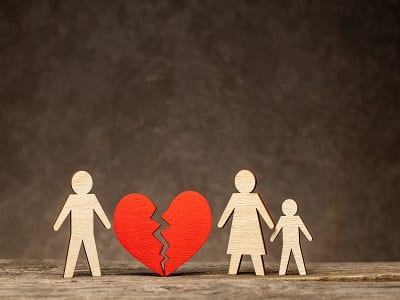The American Society of Addiction Medicine states that “people with addiction use substances or engage in behaviors that become compulsive and often continue despite harmful consequences.” A person can have an addiction to drugs, alcohol, gambling, sex, love, or another behavior that is compulsive and harmful.
Any form of addictive behavior endangers the individual’s physical and mental health, family relationships, and other aspects of their life.
As we discussed in our recent blog Understanding Sex and Love Addiction, a person with either addiction cannot engage in healthy emotional intimacy. Multiple studies link adult problems with emotional intimacy to unhealthy family relationships and negative patterns of behavior experienced in childhood.
Adverse Effects on Family
Sex and love addiction both have a profound impact on the loved ones of the addicted individual, often resulting in family members with low self-esteem, high levels of stress and anxiety, trust issues, fear, and anger.
Harm caused to both the addicted person and family members may include:
- Financial problems. Addicted person may lose their job or spend large amounts on prostitutes, pornography, and strip clubs.
- Legal problems. Sex addicts may engage in illegal behavior like solicitation, child pornography, voyeurism or exhibitionism, incurring legal fees, or incarceration.
- Inability to maintain healthy relationships. May result in divorce, domestic violence, or substance abuse.
- Mood changes. Addicted person may exhibit intense mood swings, causing fear and anxiety in family members.
- Risky sexual behavior. Unsafe sex may cause the transmission of STD or HIV to romantic partners.
Betrayed romantic partners may also experience intense mood swings, constant questioning of their partner’s whereabouts, secretly checking their partner’s phone and computer and insomnia, or may self-medicate with drugs, alcohol, food, or compulsive shopping.
Children of addicted parents experience long-term effects like low self-esteem, anxiety, fear of abandonment, helplessness, and chronic depression. When children don’t witness healthy adult relationships, they are unlikely to recognize or form healthy relationships as adults, thus continuing the cycle.
Studies have found that those with sex and love addiction frequently have a co-occurring substance use disorder, eating disorder, gambling, or other disorder, causing even more strain and potential damage to the family.
Treatment
Addiction is a chronic, but treatable, disorder. If you or a loved one have an addiction, reach out to your doctor or an addiction specialist for guidance. The sooner you seek professional treatment, the better the chance for successful long-term recovery.
Professional counseling services coupled with regular support group participation by both the addicted person and family members results in the most positive outcomes. Many rehabilitation programs include family counseling and support programs in their treatment protocol.
Online family support services for sex and love addiction include:
- 12-step recovery program for those affected by compulsive sexual behavior
S-Anon International Family Groups
- 12-step recovery program provides support for family & friends of sex addicts
- Virtual recovery resources for addicted individuals and families in all areas of addiction and mental illness
Turning Point of Tampa has been offering Licensed Residential Treatment for Addiction, Eating Disorders and Dual Diagnosis in Tampa since 1987.



